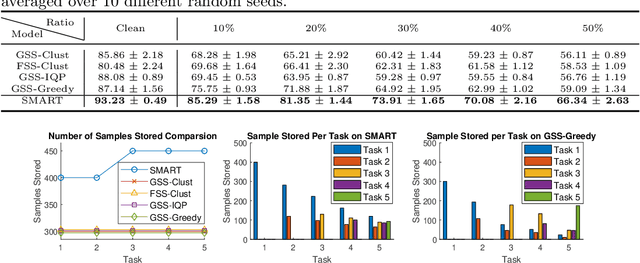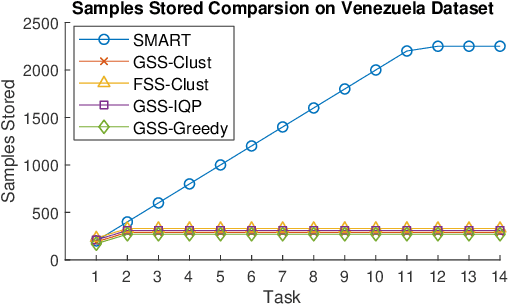Schematic Memory Persistence and Transience for Efficient and Robust Continual Learning
Paper and Code
May 05, 2021



Continual learning is considered a promising step towards next-generation Artificial Intelligence (AI), where deep neural networks (DNNs) make decisions by continuously learning a sequence of different tasks akin to human learning processes. It is still quite primitive, with existing works focusing primarily on avoiding (catastrophic) forgetting. However, since forgetting is inevitable given bounded memory and unbounded task loads, 'how to reasonably forget' is a problem continual learning must address in order to reduce the performance gap between AIs and humans, in terms of 1) memory efficiency, 2) generalizability, and 3) robustness when dealing with noisy data. To address this, we propose a novel ScheMAtic memory peRsistence and Transience (SMART) framework for continual learning with external memory that builds on recent advances in neuroscience. The efficiency and generalizability are enhanced by a novel long-term forgetting mechanism and schematic memory, using sparsity and 'backward positive transfer' constraints with theoretical guarantees on the error bound. Robust enhancement is achieved using a novel short-term forgetting mechanism inspired by background information-gated learning. Finally, an extensive experimental analysis on both benchmark and real-world datasets demonstrates the effectiveness and efficiency of our model.
 Add to Chrome
Add to Chrome Add to Firefox
Add to Firefox Add to Edge
Add to Edge